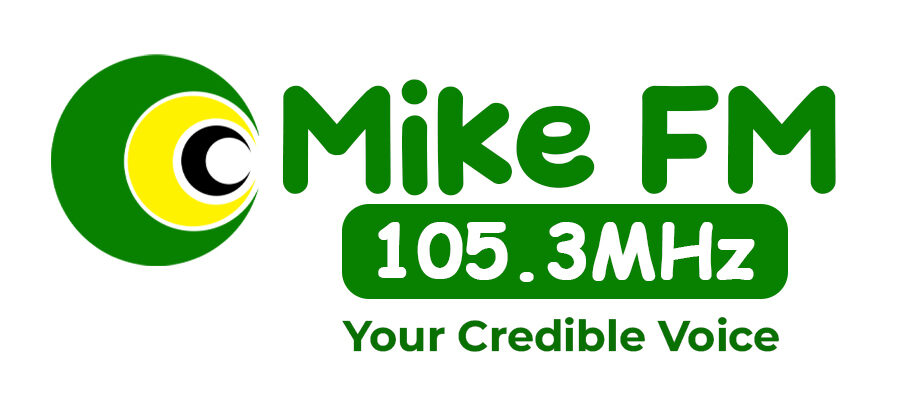Four communities in Kassena-Nankana West District benefit from solar-powered borehole project.
The project, which is fully funded by the World Bank under the Gulf of Guinea Northern Regions Social Cohesion Project (SOCO), is being implemented by the Ministry of Local Government, Decentralization and Rural Development (MLGDRD) and the National Development Planning Commission (NDPC).

Four communities in the Kassena Nankana West District of the Upper East Region are to get four solar-powered mechanized boreholes to aid dry season crop cultivation.
The beneficiary communities are; Kajelo, Navem, Biba and Kachono. The project, which is fully funded by the World Bank under the Gulf of Guinea Northern Regions Social Cohesion Project (SOCO), is being implemented by the Ministry of Local Government, Decentralization and Rural Development (MLGDRD) and the National Development Planning Commission (NDPC).
The four mechanized solar powered borehole are to be constructed at a cost of Ghc548,007. An amount of Ghc82,201.05, being part of the total cost, will be channeled to payment of unskilled labour force.
Speaking at a short ceremony to hand over the sites to the contractor, the District Engineer, Ameataba Bertimus, said the project includes the sinking of four mechanized boreholes for the various communities, fully fitted with solar panels for power generation. He added that reservoirs with the capacity to store up to 60 cubic metres of water will also be provided.
“We have handed over the sites to the contractor to drill the four boreholes and solar mechanized for dry season farming. That is the main reason we are here today, to officially hand over the four sites to the contractor to do the drilling and solar mechanization. The drilling is going to be at the four sites and each with its borehole,”
“If that is done, the contractor will bring solar panels that are going to generate the current needed to pump the water within 50 meters to hundred meters that will go into a big reservoir of sixty cubic meters which will now be the reservoir where farmers will put their tubes or pumps tubes there and pump the water to their various pepper farms and tomatoes farms,”
Touch on the quality of work and timely completion of the project, Ameataba noted that the district assembly which has a supervisory role in the project, will keep a strict eye on the contractor to ensure quality of work and completion of the project on schedule.
“The drilling is going to be done with the inspections of the district Assembly and the contractor shall pay 0.1 percent damages to the assembly if he fails to complete the project within the stipulated period. So, we expect the contractor to complete the work within three months and hand over to the communities,”
Community-driven projects.
For his part, the district chief executive, Gerald Ataogye, said that a good number of community-driven project were going to be carried out soon under the first phase of the SOCO project. He said the projects have been designed to transform the living conditions of the people.
“In Kassena Nankana West, we are benefitting from a lot of these projects, in fact, let me be quick to tell you that these projects are chosen by the people themselves in the various communities”.
He mentioned that a number of projects, including the construction of a 16-unit market stalls at Sirigu, completion of a CHPS at Kandiga Atibabisi, rehabilitation of the Nabango town water system and the construction of a triple 1.8 diameter culvert at Mirigu Gonum were to soon kick start. The other projects are; rehabilitation works for the Paga Butchers new market, the Nakolo health center, Kanania CHPS and the construction of a double 1.8 diameter culvert at Gwenia, two 16-unit market stalls at Katiu and a community social centre at Kayoro.
Hopeful impact.
Farmers from the four beneficiary communities who spoke to reporters were happy that the solar-powered mechanized borehole project was finally becoming a reality. They were delighted that the project upon completion will to contribute to poverty eradication in the communities.
Tepana Peter, a vegetable farmer in the Kajelo community, said some of his colleagues who have mechanized boreholes but were dependent on the national grid, were beginning to abandon their farms due to the high cost of electricity. He, therefore, was optimistic that the solar-powered mechanized boreholes will help boost dry season crop production and encourage more youth to go into farming.
Kuduma, another farmer who wouldn’t hide his joy, lamented the devastation water shortage has caused farmers over the years as far as crop cultivation in the areas was concerned. He too was happy that the project will provide jobs for youth and by far, reduce poverty.
Assemblyman for the Kajelo electoral area, Aniakwo Hilary expressed gratitude to the government for the initiative, which he described as support to the small dams and the water wells which have disappointed farmers in the area for years.
The project will be executed by Hydronomics Company Limited. Kututera Peter, the contractor, assured to do a good job and deliver within schedule. He appealed for cooperation from the traditional and opinion leaders as well as members of the beneficiary communities.
Source: Mike Fm with files from Wordfmonline.




